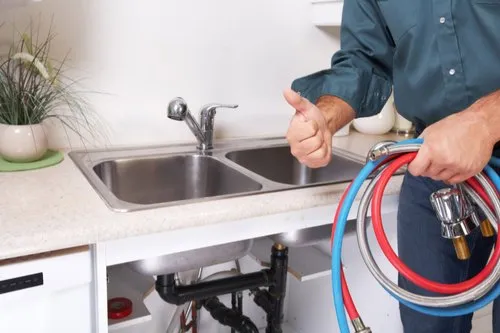Plumbing AMC Service
₹999.0
Service Details:
| Minimum Order Quantity | 5 NO |
| Duration | 10-15 Days |
| Nature Of Work | PLUMBING WORK |
| Property Type | Industrial |
| Pipeline Material | ALL TYPES |
| Number Of Engineers | 2 |
| Coverage Area | AS PER STANDARD |
| Service Charges | AS PER SITE |
| Features | WE WILL GIVE BEST SERVICES |
| Site Location | ALL OVER INDIA |
| Service Mode | Offline |
| Service Location | Pune |
We are offering Plumbing AMC Service
You must be logged in to post a review.
Q & A
Green building materials, such as green roofs and walls, and water-efficient plumbing, play a vital role in promoting sustainability in the construction and operation of buildings. Here's an overview of their sustainability benefits:
- Green Roofs and Walls:
Green roofs and walls involve the incorporation of vegetation on building surfaces, providing numerous environmental advantages:
- Stormwater management: Green roofs and walls absorb rainwater, reducing stormwater runoff and alleviating pressure on drainage systems. This helps mitigate the risk of urban flooding.
- Improved air quality: Vegetation on green roofs and walls captures airborne pollutants and filters out particulate matter, enhancing air quality in urban areas.
- Thermal regulation: Green roofs and walls provide insulation, reducing energy consumption for heating and cooling. They mitigate the urban heat island effect by reducing ambient temperatures.
- Biodiversity and habitat preservation: These installations create habitats for birds, insects, and other wildlife, promoting urban biodiversity and contributing to ecosystem resilience.
- Aesthetics and well-being: Green roofs and walls enhance the visual appeal of buildings, create green spaces, and provide opportunities for recreation and relaxation.
The sustainability of green roofs and walls depends on factors such as appropriate design, proper installation, regular maintenance, and the use of locally adapted vegetation.
- Water-Efficient Plumbing:
Water-efficient plumbing systems are designed to minimize water consumption and reduce strain on freshwater resources:
- Low-flow fixtures: Installing low-flow faucets, showerheads, and toilets can significantly reduce water usage without compromising functionality.
- Greywater and rainwater harvesting: Collecting and reusing greywater (from sinks, showers, etc.) and rainwater for non-potable purposes like irrigation, toilet flushing, or laundry reduces the demand for freshwater.
- Leak detection and prevention: Advanced plumbing systems can monitor water usage and detect leaks promptly, preventing unnecessary water wastage.
- Efficient irrigation systems: Water-efficient irrigation technologies, such as drip irrigation and smart controllers, optimize water usage in landscapes.
- Water conservation education: Educating building occupants about water conservation practices encourages responsible water use and further reduces consumption.
The sustainability of water-efficient plumbing systems relies on proper design, installation, regular maintenance, and user awareness. Integrating these systems in buildings can significantly reduce water consumption and preserve water resources.
In summary, green roofs and walls, along with water-efficient plumbing systems, offer substantial sustainability benefits, including improved stormwater management, enhanced air quality, energy efficiency, biodiversity support, and reduced water consumption. Their long-term sustainability depends on proper implementation, maintenance, and user behavior.
General Inquiries
There are no inquiries yet.




Reviews
There are no reviews yet.